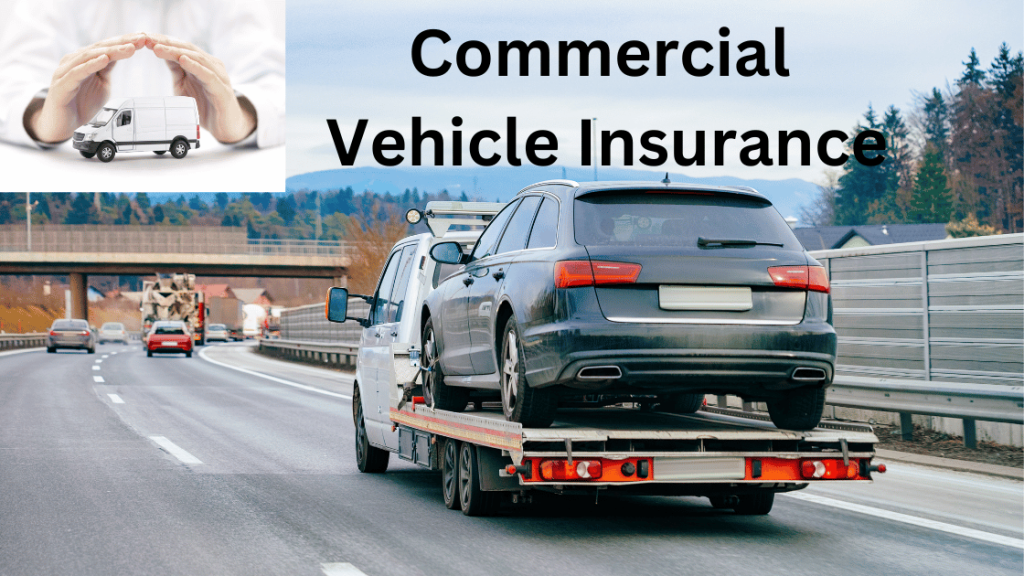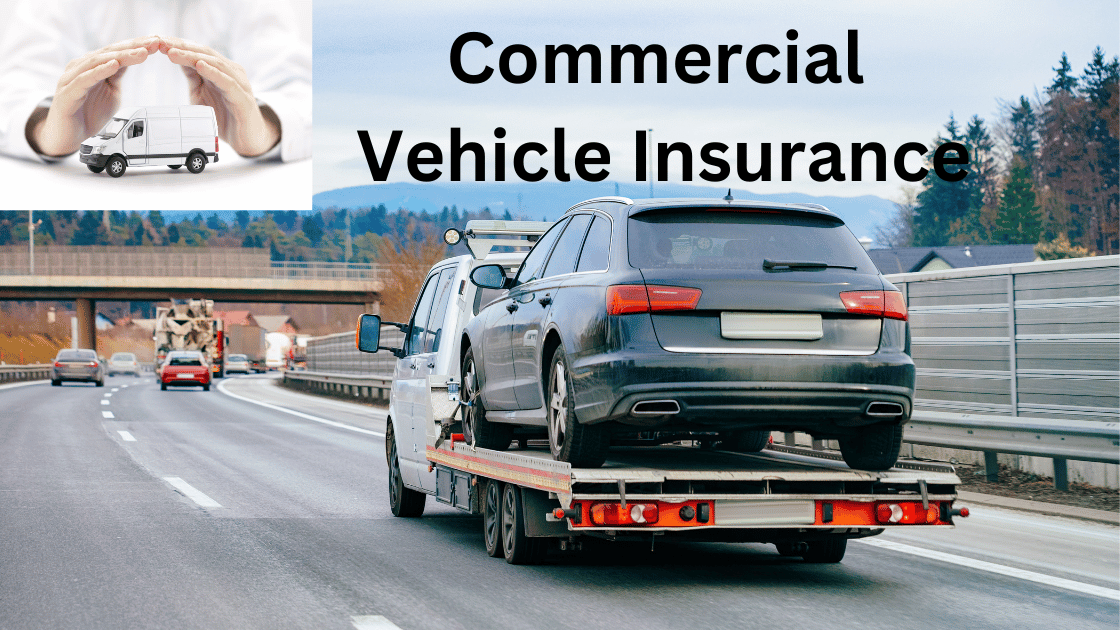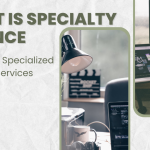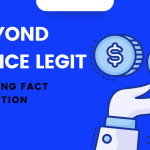Introduction
Commercial Vehicle Insurance: In today’s world, businesses rely heavily on vehicles to deliver products, provide services, and keep operations running smoothly. From local delivery trucks to long-haul transporters, commercial vehicles are the lifeblood of many industries. However, with great mobility comes the potential for accidents, damage, and unforeseen challenges. This is where commercial vehicle insurance steps in as an essential safeguard for businesses on wheels.
Understanding Commercial Vehicle Insurance
Commercial vehicle insurance is a specialized type of coverage designed to protect businesses that rely on vehicles for their operations. Unlike personal auto insurance, which covers private vehicles, commercial vehicle insurance is tailored to the unique needs and risks associated with business-related driving. It encompasses a range of vehicles, including trucks, vans, buses, and even specialized vehicles like food trucks.
Reasons Why Commercial Vehicle Insurance Is Essential
1. Legal Requirements
Operating a business vehicle without proper insurance can lead to legal troubles and financial penalties. Many jurisdictions mandate that businesses have a minimum level of commercial vehicle insurance coverage to protect third parties in case of accidents. Failure to comply with all these regulations can result in fines, suspension of licenses, and even lawsuits.
2. Financial Protection
Accidents happen, and when they involve commercial vehicles, the financial repercussions can be substantial. Repairing or replacing damaged vehicles, covering medical expenses for injured parties, and addressing legal claims can drain a business’s resources. Commercial vehicle insurance provides a safety net by helping to manage these costs, preventing businesses from facing crippling financial setbacks.
3. Business Continuity
Imagine a catering company with a fleet of delivery vans. One of these vans is involved in a collision, rendering it inoperable. Without commercial vehicle insurance, the company might struggle to fulfill its orders, leading to dissatisfied customers and potential loss of contracts. Insurance coverage facilitates swift vehicle repair or replacement, minimizing downtime and enabling businesses to maintain operations without major disruptions.
4. Liability Coverage
Liability coverage is a cornerstone of commercial vehicle insurance. When accidents occur, businesses can be held accountable for bodily injuries, property damage, and legal expenses. Liability coverage steps in to address these issues, protecting businesses from the financial fallout of legal claims and ensuring that injured parties receive necessary compensation.
Types of Coverage Under Commercial Vehicle Insurance
1. Liability Coverage
Liability coverage comes in two main forms: bodily injury liability and property damage liability. Bodily injury liability covers most medical expenses, lost wages, and legal fees in cases where the business vehicle causes injuries to others. Property damage liability also covers the costs of replacing or repairing property damaged in an accident involving the insured vehicle.
2. Collision Coverage
Collision coverage is vital for businesses that want to protect their vehicles from damage that might cause by collisions, regardless of who is at fault. If a delivery van collides with another vehicle or object, collision coverage helps cover the repair or replacement costs, minus the deductible.
3. Comprehensive Coverage
Comprehensive coverage goes beyond collisions and covers a wide range of non-collision incidents. These can include theft, vandalism, fires, natural disasters, and even hitting an animal on the road. Comprehensive coverage ensures that businesses are protected from various unforeseen events that can damage their vehicles.
4. Uninsured/Underinsured Motorist Coverage
Not all drivers on the road have adequate insurance coverage. Uninsured/underinsured motorist coverage provides protection if your business vehicle is involved in an accident with a driver who lacks sufficient insurance. This coverage helps cover medical expenses and property damage when the at-fault driver is unable to pay.
Factors Affecting Commercial Vehicle Insurance Premiums
Several factors influence the cost of commercial vehicle insurance premiums:
1. Type of Vehicle
The make, model, size, and purpose of the vehicle impact insurance rates. Trucks designed for heavy hauling might have higher premiums due to their increased risk.
2. Driving Record
The driving history of the individuals operating the vehicles matters. A very clean driving record can lead to lower premiums, as it indicates responsible driving behavior.
3. Location
Where the vehicles are operated plays a role in determining premiums. Urban areas often have higher rates due to increased traffic and accident risks.
4. Coverage Limits
Choosing higher coverage limits and lower deductibles generally leads to higher premiums. Finding the good balance between adequate coverage and affordability is crucial.

Selecting the Right Commercial Vehicle Insurance
1. Assessing Business Needs
Every business has unique requirements. Evaluate factors like the type of vehicles, usage patterns, and potential risks to determine the appropriate coverage.
2. Comparing Insurance Providers
Research and compare different insurance providers to find the best fit for your business. Look for insurers with a strong reputation, good customer reviews, and a history of reliable claims handling.
3. Customizing Coverage
Tailor your insurance coverage to your business’s specific needs. Consider adding endorsements or additional coverage options that align with your operations.
FAQs About Commercial Vehicle Insurance
Q1. Is commercial vehicle insurance required by law?
A1. Yes, in most jurisdictions, businesses that use vehicles for commercial purposes are legally required to carry commercial vehicle insurance. This requirement ensures that businesses can cover the costs of accidents and injuries involving their vehicles.
Q2. Can I use personal auto insurance for my business vehicle?
A2. No, personal auto insurance typically excludes coverage for vehicles used for business purposes. If you use a vehicle for work-related activities, it’s essential to have commercial vehicle insurance to properly protect your business.
Q3. How are commercial vehicle insurance premiums calculated?
A3. Insurance premiums are calculated based on some factors such as the type of vehicle, location, driving record, coverage limits, and deductibles. Safer vehicles and clean driving histories can lead to lower premiums.
Q4. What is the claims process like for commercial vehicle insurance?
A4. The claims process involves reporting the incident to your insurance provider, documenting the damages, and providing any necessary information. An adjuster will assess the situation and determine the coverage and compensation.
Q5. Can I get discounts on commercial vehicle insurance?
A5. Yes, many insurance providers offer different discounts for factors like safe driving records, vehicle safety features, bundling policies, and completing driver training programs. Ask your insurance agent about available discounts.
Case Studies: Real-Life Examples
To further emphasize the significance of commercial vehicle insurance, let’s delve into a couple of real-life scenarios where businesses reaped the benefits of having proper coverage:
Case Study 1: The Delivery Dilemma
Imagine a courier company with a fleet of vans delivering packages across the city. One day, a driver accidentally rear-ends another vehicle, causing significant damage to both vehicles. Without commercial vehicle insurance, the company would have been responsible for covering the repair costs of both vehicles, not to mention potential medical expenses for any injuries sustained. Thanks to their comprehensive commercial vehicle insurance, the company was able to have the vehicles repaired promptly and settle any related claims, allowing them to resume their delivery operations without major disruptions.
Case Study 2: Food Truck Fiasco
Consider a mobile food truck business that frequents local events and street corners. During a bustling festival, a sudden rainstorm causes water damage to the food truck’s kitchen equipment. Without proper coverage, the business owner would have faced hefty replacement costs for the damaged equipment. However, with comprehensive coverage in place, the insurance company covered the expenses, ensuring that the food truck could quickly get back to serving its customers.
Common Myths and Misconceptions
As businesses explore the world of commercial vehicle insurance, it’s essential to dispel common myths and misconceptions that can cloud their decision-making:
Myth 1: Personal Auto Insurance Suffices for Business Use
While personal auto insurance may provide coverage for personal vehicles, it typically excludes coverage for vehicles used for business purposes. Using personal auto insurance for business-related driving can lead to denied claims and legal complications.
Myth 2: Only Large Businesses Need Commercial Vehicle Insurance
Commercial vehicle insurance is essential for businesses of all sizes that use vehicles for their operations. Whether you’re a small local bakery delivering freshly baked goods or a large logistics company managing a fleet of trucks, having the right insurance is crucial.
Myth 3: All Commercial Vehicle Policies Are the Same
Commercial vehicle insurance policies can vary significantly in terms of coverage, limits, and exclusions. It’s important to carefully review policy details and work with an insurance professional to tailor coverage to your business’s specific needs.
Tips for Minimizing Premium Costs
Managing insurance costs is a priority for any business. Here are some practical strategies to help lower commercial vehicle insurance premiums:
1. Implement Driver Training Programs
Promote safe driving behaviors among your employees by offering driver training programs. Safe drivers with clean records are mostly rewarded with lower premiums.
2. Invest in Vehicle Safety Features
Equipping your vehicles with advanced safety features such as anti-lock brakes, airbags, and electronic stability control can lead to premium discounts.
3. Bundle Policies
Consider bundling your commercial vehicle insurance with some different business insurance policies, such as property insurance or general liability. Many insurers offer discounts for bundling.
4. Regularly Maintain Vehicles
Routine vehicle maintenance not only ensures safe operations but also demonstrates your commitment to risk reduction. Some insurers offer discounts for well-maintained vehicles.
The Claims Process: What to Expect
In the unfortunate event of an accident or damage, the claims process is your lifeline to recovery. Here’s an overview of what you can expect:
- Report the Incident: Notify your insurance provider about the incident as soon as possible. Timely reporting is crucial for a smooth claims process.
- Provide Documentation: Gather and provide all necessary documentation, including accident reports, photos of damages, and any relevant information about parties involved.
- Claims Adjuster Assessment: An insurance adjuster will assess the damages and determine the coverage and compensation based on your policy.
- Repair or Replacement: Once the claim is approved, you can proceed with repairing or replacing the damaged vehicle. Your insurance provider will provide guidance on approved repair facilities.
- Claim Settlement: After repairs or replacement are completed, the insurance company will settle the claims by reimbursing you for the covered expenses, minus any deductibles.
Evolving Trends in Commercial Vehicle Insurance
The world of commercial vehicle insurance is not static; it’s evolving to keep pace with technological advancements and changing business landscapes:
1. Telematics Integration: Telematics technology allows insurers to monitor driving behaviors and vehicle data. Businesses adopting telematics can potentially benefit from personalized premium rates based on actual driving habits.
2. Usage-Based Insurance: This trend involves adjusting insurance premiums based on the frequency and distance of vehicle usage. Businesses that use their vehicles less frequently may find this approach cost-effective.
3. Digital Claims Processing: Insurers are embracing digital platforms for faster claims processing. Mobile apps and online claims submission streamline the process, reducing downtime for businesses.
4. Electric Vehicle Coverage: As electric vehicles gain traction, insurers are developing specialized coverage options to address the unique risks and considerations associated with EVs.
Conclusion
Commercial vehicle insurance is not just an option; it’s a vital necessity for any business that relies on wheels to keep its operations rolling. The protection it offers against accidents, liabilities, and unforeseen challenges can mean the difference between business success and financial ruin. By understanding the importance of commercial vehicle insurance and making informed decisions about coverage, businesses can ensure a safer and more secure journey on the road to success.
Thanks for reading. Also read: Securing Your Team: The Essentials of Employment Insurance | 2023
Allstate Insurance Near Me: Finding Your Perfect Coverage 2023
Commercial Property Insurance Explained: Safeguarding Your Business | 2023
Commercial Insurance: Hauling Your Business Toward Success | 2023










